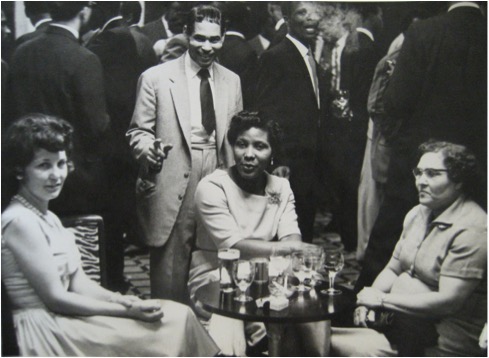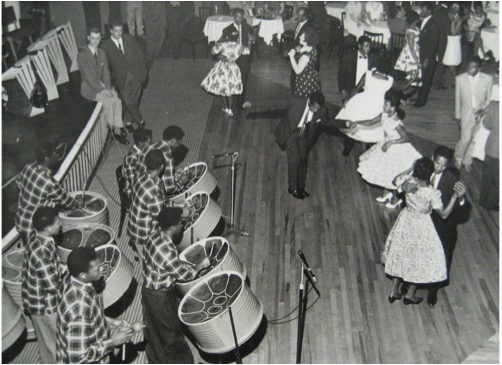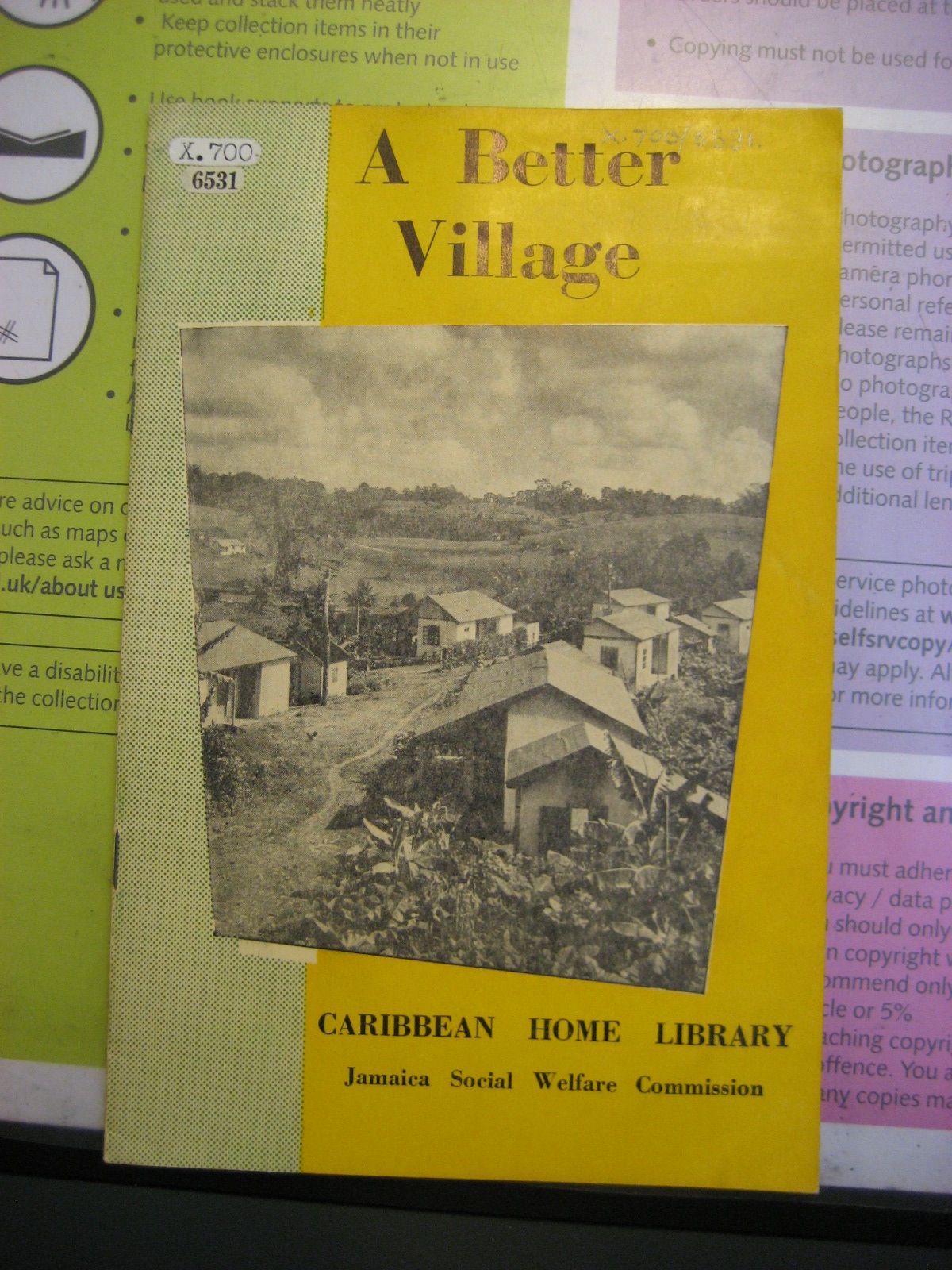Writing
I am a historian of Modern Imperial Britain with a focus on the transformations wrought by decolonization on local, national, and global scales. I examine these transformations through three inter-related fields of research: 1. multiculturalism; 2. community development; and 3. the interpretation of decolonization and the post-imperial world through visual culture and the arts.
Multiculturalism
 My first book examines how late imperial migration shaped the forms of welfare, social rights and citizenship in postwar Britain. In Empire and the Origins of Multiculturalism: Migrants, Citizenship, and Community in Britain, 1948–1982, I argue that the presence of imperial migrants in cities and towns throughout Britain created a problem of community, generated a discussion of imperial history, and produced an investment in multiculturalism. Through examination of encounters between migrants, social workers, community organizations, and the state, I show how a social democratic ideal of community gave way to a social imaginary which defined migrants and their descendants on the basis of their belonging to distinct cultural communities. Significantly, this conceptual shift occurred alongside formal decolonization and contributed to the eclipse of shared imperial identity by new forms of multicultural national identity.
My first book examines how late imperial migration shaped the forms of welfare, social rights and citizenship in postwar Britain. In Empire and the Origins of Multiculturalism: Migrants, Citizenship, and Community in Britain, 1948–1982, I argue that the presence of imperial migrants in cities and towns throughout Britain created a problem of community, generated a discussion of imperial history, and produced an investment in multiculturalism. Through examination of encounters between migrants, social workers, community organizations, and the state, I show how a social democratic ideal of community gave way to a social imaginary which defined migrants and their descendants on the basis of their belonging to distinct cultural communities. Significantly, this conceptual shift occurred alongside formal decolonization and contributed to the eclipse of shared imperial identity by new forms of multicultural national identity.
 As an outgrowth of this project, I have written two articles on the politics of race and racism in post-war Britain. “Saving Asian Marriages: Migration, Gender, and the Communal Politics of Welfare in 1970s Britain” was published in Global Labor Migrations: New Directions. The essay examines welfare services for South Asian women and argues these services both preserved the patriarchy of the South Asian families, and provided white women an outlet for their desires to save Asian women. A second article will be published as part of a thematic issue of Twentieth Century British History on "Marking Race in Twentieth Century British History." My article examines how the British state targeted young male migrants from South Asia as a means to reduce migration from the Commonwealth. In doing so, they denigrated male familal relations and denied family reunion.
As an outgrowth of this project, I have written two articles on the politics of race and racism in post-war Britain. “Saving Asian Marriages: Migration, Gender, and the Communal Politics of Welfare in 1970s Britain” was published in Global Labor Migrations: New Directions. The essay examines welfare services for South Asian women and argues these services both preserved the patriarchy of the South Asian families, and provided white women an outlet for their desires to save Asian women. A second article will be published as part of a thematic issue of Twentieth Century British History on "Marking Race in Twentieth Century British History." My article examines how the British state targeted young male migrants from South Asia as a means to reduce migration from the Commonwealth. In doing so, they denigrated male familal relations and denied family reunion.
Community Development
 In my research for my first book, I came to realize that ideas of community and development were central to the late imperial project. Community and development were not only the work of imperial officials, however. Community development shaped anti-colonial nationalist movements and animated much of the policy of post-independence nation-states. This project will trace links between cooperative societies of the late nineteenth century in Canada and Britain, village community development in South Asia, Africa and the Caribbean during decolonization, and south-south community development expertise and exchange in the post-independence era. The project will end with the rise of micro-finance as the predominant mode of development in the 1970s and consider this shift from collective uplift to individual advancement in the beginning of the neoliberal era.
In my research for my first book, I came to realize that ideas of community and development were central to the late imperial project. Community and development were not only the work of imperial officials, however. Community development shaped anti-colonial nationalist movements and animated much of the policy of post-independence nation-states. This project will trace links between cooperative societies of the late nineteenth century in Canada and Britain, village community development in South Asia, Africa and the Caribbean during decolonization, and south-south community development expertise and exchange in the post-independence era. The project will end with the rise of micro-finance as the predominant mode of development in the 1970s and consider this shift from collective uplift to individual advancement in the beginning of the neoliberal era.
I have written an essay that begins to explore the long history of community development for a forthcoming edited collection, Reading the Postwar Future: Textual Turning Points from 1944. My essay examines how F. L. Brayne's plans for village improvement in Punjab were re-purposed for the postwar moment and translated for African, and eventually, Caribbean contexts.
Decolonization and Visual Culture
“Performing Multiculturalism: the Commonwealth Arts Festival of 1965” was published in the Journal of British Studies in 2014. This article explores the diplomatic and aesthetic challenges faced by the organizers of a three-week festival of the arts. The Festival highlighted the political and cultural challenge presented by decolonization as organizers had to both encourage the participation of post-colonial governments and to transform imperial cultural hierarchies into a more democratic post-imperial association. Through this process Commonwealth multiculturalism was brought to a global stage. This multiculturalism celebrated the unique artistic productions of each Commonwealth nation, but did so alongside an imperial nostalgia that could not let go of the certainties of the past.
In conducting research for this article, I discovered several internet archives related to this Festival. Enjoy!
Life, October 1, 1965
The Commonwealth Dances, Movietone newsreel
Commonwealth Goes Gay, British Pathé newsreel
Commonwealth Art, British Pathé silent reel of the Art Exhibition at the Festival Hall
Commonwealth Arts and Dancing Festival, British Pathé silent reel of performances from the Festival